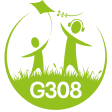Reference

Enrolling Soon – The G308 study for children and adolescents with grass pollen allergy (seasonal allergic rhinitis/rhinoconjunctivitis [SAR])
Receive a stipend by participating in our patient referral program
The G308 study is looking for physicians who can refer their patient(s) to participate in our study.
A stipend will be provided to physicians whose patients pass screening for G308 (even if they do not enroll in the study).
Physicians may refer more than one patient.
For more information about the physician referral program and/or to refer a patient, please enter your contact information.
Please enter your contact information.
* Required Field
It’s time for a fresh approach
Close to half of all children struggle with seasonal allergic rhinitis/rhinoconjunctivitis1 but few long-term immunotherapy studies address the pediatric population.
Allergen immunotherapy for children and adolescents could result in:

Short and long-term reduction in allergy symptoms

Decreased need for relief medication

Long-term reduction in the progression of multiple allergies and allergic asthma
G308 is an allergen immunotherapy study applying innovative research methodologies to address the causal mechanisms of allergic disease with its investigational drug, PQ Grass.
PQ Grass is an allergen extract that:
●
Is designed to induce immunological tolerance
●
Will be administered by subcutaneous injection
●
Is researching a way to minimize allergic reactions in those with grass allergy
Studies show that seasonal allergic rhinitis/rhinoconjunctivitis affects about 40% of children1, making it the most common chronic disease of childhood in many populations
The G308 study is a long-term study that will be:
●
Researching the efficacy of PQ Grass in children and adolescents
●
Enrolling Fall 2024
1. Bousquet J, Van Cauwenberge P, Khaltaev N; Aria Workshop Group; World Health Organization. Allergic rhinitis and its impact on asthma. J Allergy Clin Immunol. 2001 Nov; 108(5 Suppl): S147-334.
Who is eligible for this study?
Patients may qualify if they:
●
Are 5 to 16 years of age (inclusive)
●
Have a history of moderate to severe seasonal allergic rhinitis and/or rhinoconjunctivitis:
●
With symptoms that persist despite receiving allergy pharmacotherapy
●
That is attributed to grass pollen exposure
●
Have a positive skin prick test to grass pollen
This is not a complete list of eligibility criteria.
The full list will be available soon.
Study Summary

Study Drugs:
PQ Grass, an investigational allergen extract, administered subcutaneously or placebo

Participant Details:
Children and adolescents 5 to 16 years of age (inclusive) with seasonal allergic rhinitis/rhinoconjunctivitis ascribable to grass pollen

Can patients with asthma participate?
Individuals with mild to moderate, well-controlled asthma not requiring more than a low to medium daily dose of inhaled corticosteroid, may participate

Enrollment Period:
Enrolling soon